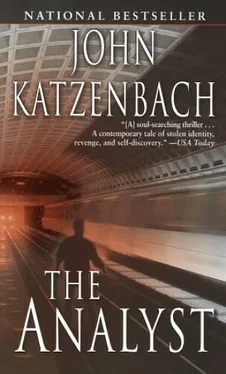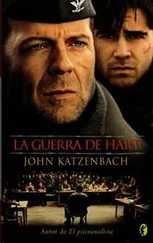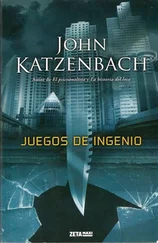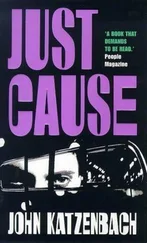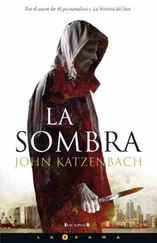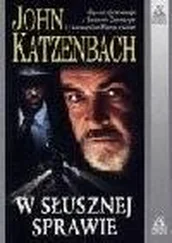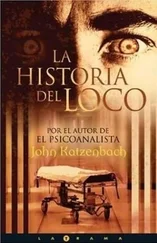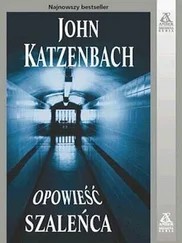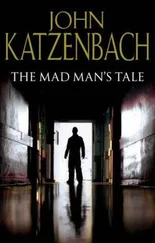She waved her hand in the air above the table, dismissing a reply before he could come up with one. “… On to business. You got the reply to your questions in your paper this morning?”
Ricky paused, then answered: “Yes.”
“Good. That’s why he sent me here this evening. To double-check. Wouldn’t be fair, he thought, if you didn’t get the answers you were searching for. I was surprised, of course. Mr. R. decided to put you much closer to him. Closer than I’d have thought prudent. Pick your next questions wisely, Ricky, if you want to win. It seems to me that he’s given you a big opportunity. But as of tomorrow morning, you have only a single week left. Seven days and two remaining questions.”
“I’m aware of the time.”
“Are you? I think you don’t get it. Not yet. But, as long as we’ve been talking about motivation, Mr. R. sent along something to help you pick up the pace of your investigation.”
Virgil bent down and lifted the small leather portfolio that she’d carried beneath her arm when she’d first approached Ricky, and which she’d subsequently placed on the floor. She deliberately opened the satchel and removed a manila envelope, similar to others Ricky had seen. She handed this across the table to him. “Open it up,” she said. “It’s just filled with motivation.”
He undid the clasp and opened the envelope. Inside were a half-dozen eight-by-ten black-and-white photographs. He removed these and examined them. There were three different subjects, each in the center of two photographs. The first shots were of a young woman, perhaps sixteen or seventeen years old, wearing blue jeans and sweat-stained T-shirt, with a carpenter’s leather belt around her waist, wielding a large hammer. She appeared to be working at some construction site. The next two photographs were of another child, younger, a girl perhaps twelve years old, seated in the bow of a canoe, paddling across a lake in a wooded region. The first shot seemed slightly grainy, the second, seemingly taken from a distance with an extremely long lens, was a close-up, near enough to show the girl’s braces as she grinned with the exertion of paddling. Then there was a third set of another teenager, a boy with longish hair and an insouciant smile, gesturing with a street vendor in what appeared to be a street in Paris.
All six pictures seemed to be taken without the knowledge of the subjects. It was clear that the photographer had snapped them off unnoticed by the three young people.
Ricky examined the pictures carefully, then looked up at Virgil. She no longer smiled.
“Recognize anyone?” she asked coldly.
He shook his head.
“You live in such splendid isolation, Ricky. It makes all this so damn simple. Look harder. Do you know who those young people are?”
“No. I do not.”
“Those are pictures of some of your distant relatives. Each one of those children is on the list of names Mr. R. sent you at the beginning of your game.”
Ricky looked again at the pictures.
“Paris, France, Habitat for Humanity, Honduras, and Lake Winnipesaukee in New Hampshire. Three kids on their summer vacations. Just like you.”
He nodded.
“Do you see how vulnerable they are? Do you think it was hard to take these photographs? Could one replace a camera with a high-powered rifle or a handgun, perhaps? How easy would it be to simply remove one of these children from the benign environment they’re enjoying? Do you think any of them has any idea how close to death they might be? Do you imagine any of them have even the vaguest notion that life might just come to a sudden, bloody, screeching halt in seven short days?”
Virgil pointed at the photographs.
“Take another long look, Ricky,” she said. She waited while he absorbed the images. Then she reached across the table to take the pictures from his hands. “I think all that we need to leave you with are the mental portaits, Ricky. Put the smiles those children wear into your head. Try to imagine the smiles they might enjoy in the future as they grow into adulthood. What sort of lives might they lead? What sort of people would they grow into? Will you rob the future from one of them-or someone like them-by obstinately clinging to your own pathetically few years remaining?”
Virgil paused, then with snakelike speed, she grabbed the photographs from his hands. “I’ll take these,” she said as she returned the photographs to her satchel. She pushed back from the table, simultaneously dropping a single hundred-dollar bill on top of her half-eaten plate of food. “You’ve stolen my appetite,” she said. “But I know your financial situation has deteriorated. So I’ll pay for dinner.”
She turned toward the waitress, hovering at a nearby table. “Do you have some chocolate cake?” she asked.
“A chocolate cheesecake,” the woman replied. Virgil nodded.
“Bring a piece for my friend, here,” she said. “His life has suddenly turned bitter and he needs some sweetness to get him through the next few days.”
Then she pivoted and walked out, leaving Ricky alone. He reached for a glass of water and noticed that his hand shook slightly, rattling the ice cubes in the glass.
He walked home in the growing city darkness, his isolation nearly complete.
The world around him seemed a rebuke filled with connections, a near-constant tease of people meeting people in the commerce of existence. He felt almost invisible walking down the streets back to his apartment. In a curious way, Ricky realized, he was almost transparent. No one who walked or drove past him, not one person, would register him on their view of the world. His face, his appearance, his very being, did not mean anything to anyone except the man stalking him. His death, on the other hand, was of critical importance to some anonymous relative. Rumplestiltskin, and by proxy Virgil and the lawyer Merlin and probably some other characters he hadn’t yet met, were the bridges between living and dying. It seemed to Ricky that he had entered into the netherworld occupied by the people who are given the worst diagnosis by a doctor or assigned a date of execution by their judge: the few who know the date of their death. He could feel a cloud of despair hovering just over his head. He was reminded of the famous cartoon character he remembered from his own youth, Al Capp’s great creation of Joe Bflspk, doomed to walk beneath a personal rain cloud dripping dampness and bolts of lightning wherever he went.
The faces of the three young people in the photographs were like ghosts to him-vaporous, filmy. He knew he had to create substance around them, so that they would be real to him. He wished he knew their names, knew also that he had to take some steps to protect them. As he fixed their faces in the near part of his memory, his pace picked up. He saw the braces in one smile, the longish hair, the sweat of selfless exertion, and as he saw each photograph, as clearly as he had when Virgil thrust them across the restaurant table, his stride lengthened, his muscles tightened, and he began to hurry. He could hear his shoes slapping against the sidewalk, almost as if the sound was coming from somewhere outside his own life, until he looked down and saw that he was nearly running. Something loosened within him, and he gave in to a sensation he didn’t recognize, but to anyone stepping aside on the sidewalk to let him pass, must have seemed like a full-blown panic.
Ricky ran, breath heaving in his chest, rasping between his lips. One block, then another, not stopping as he crossed streets, leaving a blast of taxicab horns and obscenities in his wake, not seeing, not hearing, his head filled only with images of death. He did not slow until he was within sight of the entranceway to his home. He heaved to a stop, bending over, gasping for breath, stinging moisture dripping into his eyes. He remained like that, regaining his wind, for what seemed like several minutes, blocking everything out except the heat and the pain of sudden motion, hearing nothing except his own labored breath.
Читать дальше
